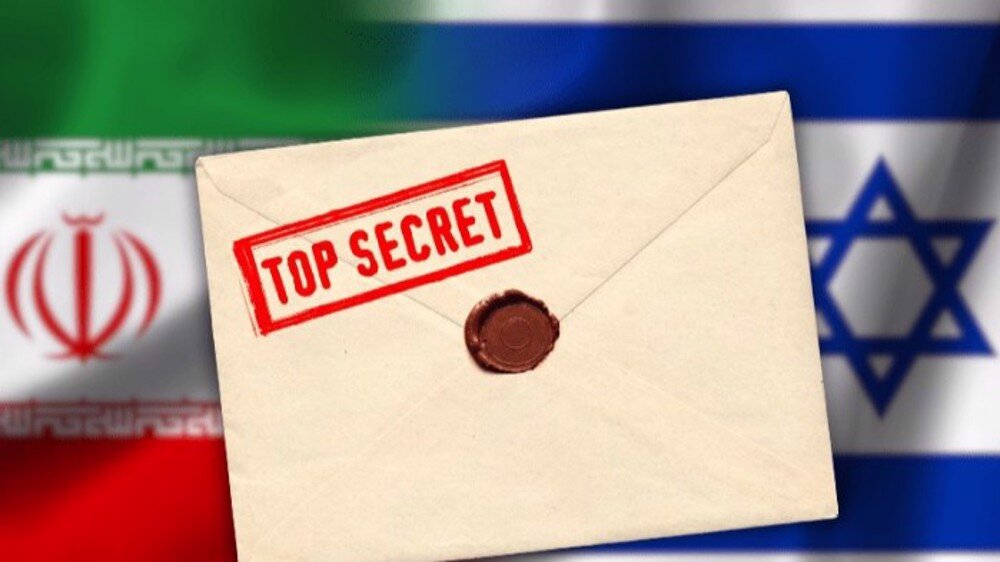Iran’s intelligence coup exposes vulnerabilities of Israel

MADRID – On Saturday, Iran announced that it had successfully extracted a vast number of sensitive documents and information related to the Israeli regime, reportedly including details about its nuclear programs and facilities. Although Tehran has yet to provide conclusive evidence or technical specifics about the operation’s full scope, the announcement has reignited focus on one of the region’s most strategically significant rivalries.
Over the past decade, competition between Iran and Israel in intelligence and security matters has intensified, becoming one of the most volatile and decisive fronts in the region. This confrontation, rarely expressed openly, manifests through covert operations, cyberattacks, and clandestine missions aimed at infiltrating and undermining critical enemy infrastructures. Incidents such as the assassination of the prominent Iranian nuclear scientist Mohsen Fakhrizadeh and repeated cyber assaults on Israeli infrastructure illustrate the complexity and sophistication of this silent war.
The recent Iranian disclosure arrives amid a tense and highly sensitive backdrop. Just weeks ago, Israel’s internal security service, Shin Bet, along with Israeli police, announced the arrest of two young Israeli citizens—Roy Mizrahi and Almog Atias, both 24 years old and residents of Nesher in the Haifa region, northern occupied territories. Both were formally accused of collaborating with Iran. Although Israeli authorities have not confirmed a direct link to the mass leak of documents, the timing of these events cannot be overlooked.
According to official Israeli sources, the investigation was kept strictly confidential to avoid compromising counterintelligence operations. It is speculated that the arrests occurred after sensitive information had already been transferred out of the occupied territories. This would represent a significant blow to Israeli security services and could indicate a far deeper penetration into the regime’s civilian or military apparatus than previously acknowledged.
The volume of documents extracted, according to sources familiar with the matter who spoke to Iran’s Radio and Television News Agency, is so extensive that reviewing and analyzing them will take weeks, if not months. Furthermore, it was announced that part of this material will be made public once the preliminary study is complete. This step, common in intelligence disputes between states, serves both to internationally pressure the adversary and to showcase Iran’s strategic espionage capabilities.
A context of growing espionage and Israeli vulnerability
Arrests and accusations of espionage for Iran in Israel have become recurrent news in recent months. Shin Bet confirmed that in 2024, there was a 400% increase in arrests related to espionage activities favoring Iran—a figure that reflects not only an alleged rise in Tehran’s operations but also an evident internal vulnerability of the Israeli regime.
This surge has sparked profound concern within Israel, where Iranian infiltration could translate into actions gravely affecting the regime’s survival. Recently, the detention of two Israeli military reservists accused of collaborating with Iran was reported; one of them was assigned to the missile defense system known as the “Iron Dome,” the cornerstone of Israel’s military shield. Politician Ehud Yatom described this as the most serious espionage case in months, highlighting the troubling depth of Iranian penetration into Israeli defensive structures.
Yatom himself warned that Iran’s success in infiltrating the Iron Dome raises substantial questions about the military security of the Zionist state. Meanwhile, Israeli media outlets like Walla have reported, citing security sources, that Iran is actively recruiting spies within Israel and that Israeli citizens are willing to betray for financial gain.
Shalom Ben-Hanan, a former Shin Bet official, described this phenomenon as a grave and dangerous problem, pointing to the growing number of Israelis who consciously and willingly accept collaboration with Iran in espionage, intelligence gathering, or sabotage planning. This reality reflects a deep fracture in the Israeli social fabric.
Why do Israeli citizens spy for Iran?
At the root of this phenomenon lie growing internal social divisions within Israel and the occupied territories. The Israeli population largely consists of settlers from diverse origins who do not share a strong cultural, religious, or historical common base. This hinders the formation of a cohesive “national” sentiment, with personal and fragmented interests prevailing instead.
Moreover, tensions and clashes between major social groups—especially between secular sectors and the ultra-Orthodox (Haredim)—create polarization that weakens a cohesive Israeli identity and opens spaces for infiltration and recruitment by foreign powers such as Iran.
Systematic discrimination against minorities and ethnic groups within Israel also fuels discontent and motivations to collaborate with external adversaries. At the same time, Israel’s economic crisis, exacerbated by Netanyahu’s reign and the impact of the military operation “Operation Al-Aqsa Storm,” has worsened living conditions and increased social dissatisfaction.
Contrary to official propaganda portraying prosperity, Israel’s economic reality is marked by growing inequalities and hardship. According to Israeli media reports, political, social, and economic discontent has fostered a surge in recruitment for foreign intelligence services, including Iran’s.
In recent months, more than 600 cases of espionage for Iran have been reported, involving information gathering in military and security environments, underscoring the scale and reach of this infiltration.
A strategic shift and a long-term challenge
International agencies such as Reuters have highlighted Israel’s growing concern over the expansion of Iranian influence within its internal structures. The arrest of about 30 citizens, mostly Jewish, accused of belonging to nine clandestine cells dedicated to espionage for Iran, represents Tehran’s largest infiltration operation in decades within the Israeli regime.
Additionally, Israel has shown increasing vulnerability to cyberattacks and loss of critical sensitive information. The media outlet IntelliTimes noted that Iran is actively working to recruit spies inside the occupied territories and to conduct offensive intelligence operations.
This rise in espionage favoring Iran represents not only a security challenge but also exposes the internal disintegration of the Israeli regime, revealing political, social, and economic weaknesses. While Israel accuses Iran of attempting infiltration, the reality shows that these penetrations are symptoms of deep structural crises within Israeli society and its institutions.
Leave a Comment